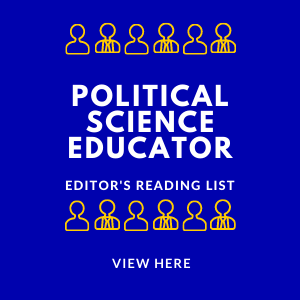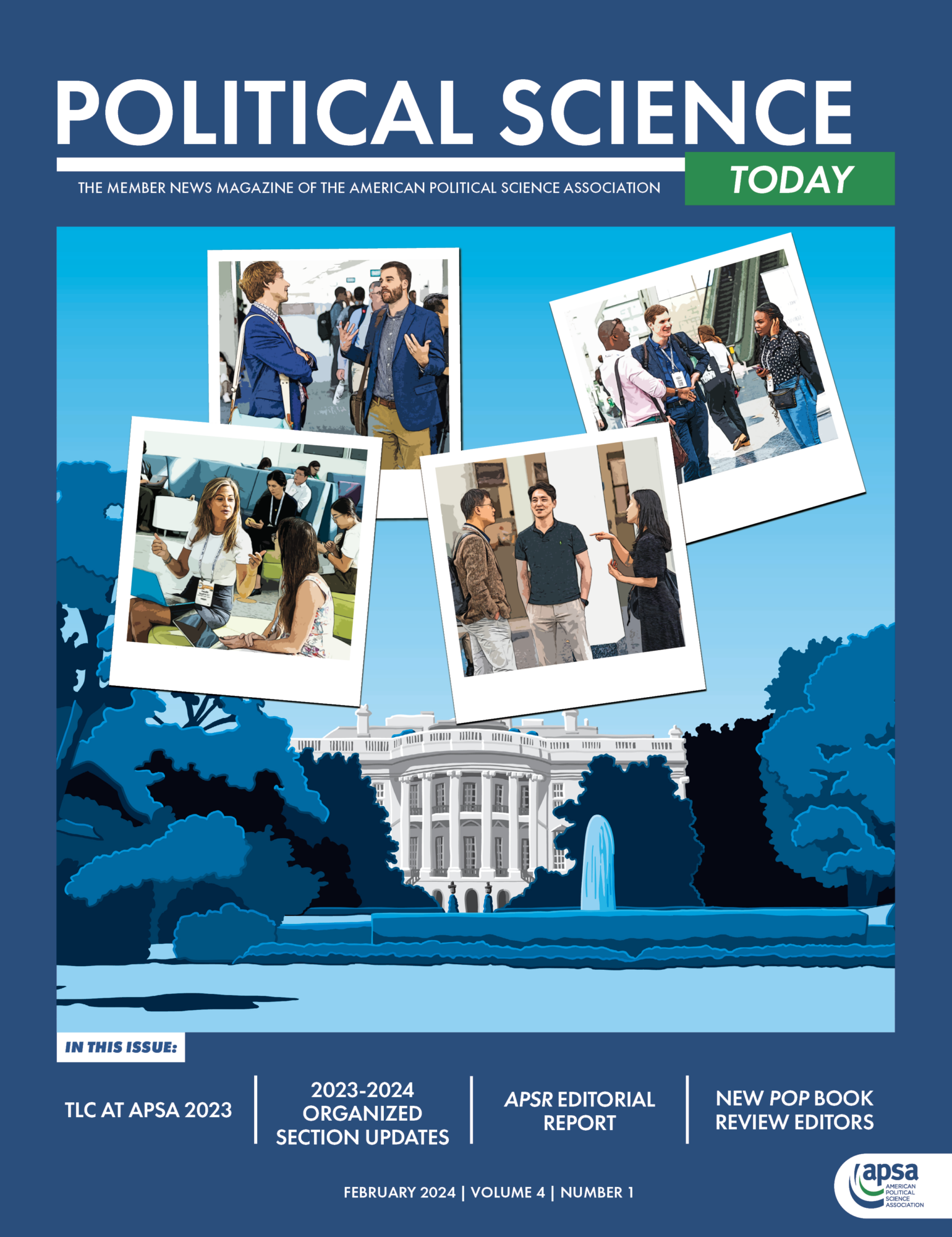Victor Asal, State University of New York, Albany
This essay originally appeared in the Political Science Educator’s Winter 2017 issue.
I am writing to you as the new editor in chief of the Journal of Political Science Education (JPSE). The team of editors — myself, Mitchell Brown, Shane Nordyke, Joseph W. Roberts, Mark Johnson, and J. Cherie Strachan — would like to encourage you to submit manuscripts to the journal. The journal has become an important outlet for sharing ideas and knowledge about pedagogy in political science since its inception, and we would like to encourage further growth as the journal moves into being an Association‐ wide journal of the American Political Science Association. We also would like to

make readers aware that the types of manuscripts that JPSE is looking for has widened and we believe that the variety of sections we now have in the journal will be of great interest to you both as readers and as contributors. We are continuing the tradition of JPSE of publishing articles devoted to the Scholarship of Teaching and Learning, but we are expanding the reach of the journal to include case studies, examples of useful approaches to teaching, and reflections on teaching from a variety of perspectives. Specifically we are looking for:
- Scholarship of Teaching and Learning (editors: Mitchell Brown and Shane Nordyke): Submissions should use the highest standard of evidence in writing about evidence‐based approaches to teaching practices and encourage assessment of such teaching and practices. Submissions can be diverse in terms of topic, analytic approach, and levels of analysis, but must maintain systematic methodological approaches. Length of manuscript may range from 3,000‐8,000 words, and research notes between 2,000‐5,000 words. Authors of accepted papers will be required to make datasets publically available online through their choice of venue or provide a compelling rationale if they are unable to do so.
- Political Science Instruction (editor: Joseph Roberts): Submissions should focus on innovative teaching cases that discuss useful pedagogy, including strategies, games, and experiential learning in teaching political science to diverse audiences. They should also be organized around real classroom problems and potential solutions. Submissions may range in length from 2,000‐4,000 words.
- Reflections on Teaching and the Academy (editor: Mark Johnson): Submissions should be from experienced scholar‐teachers that focus on reflections on timely and important teaching topics that include transitioning between institutional types, teaching under‐prepared students, training graduate students for teaching careers, and other issues. Submissions may range in length from 1,000‐2,000 words.
- Books, Teaching Tools, & Educational Resources (editor: J. Cherie Strachan): Submissions should help readers identify available new books, software and resources, and to improve classroom and co‐curricular learning experiences through reviews of textbooks, pedagogy tools and other related resources. Submissions may range in length from 500‐2,000 words.
If you have any questions, such as whether a topic is appropriate for the journal, feel free to email me or the editor of the section you think is the best fit for a submission.
Political Science Educator: Editor’s Reading List presents select PSE articles from the previous 15 years. APSA Educate is please to announce it will feature all future Political Science Educator‘s issues.





